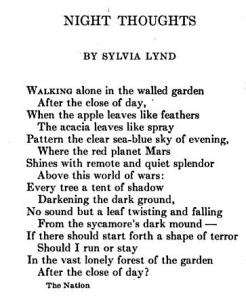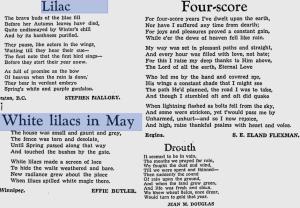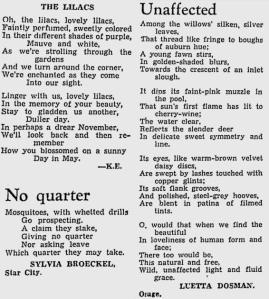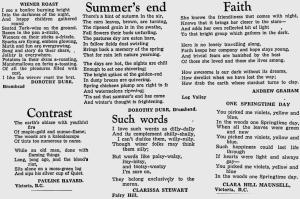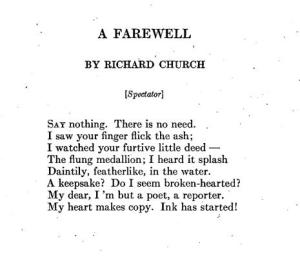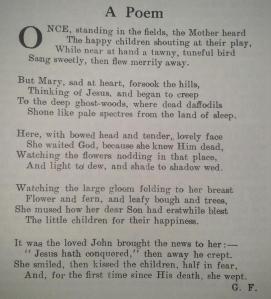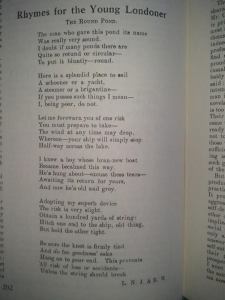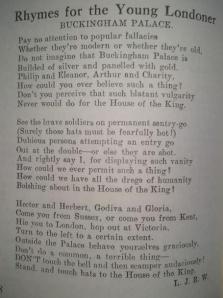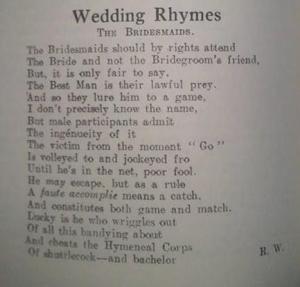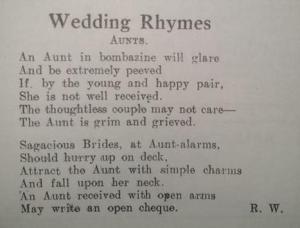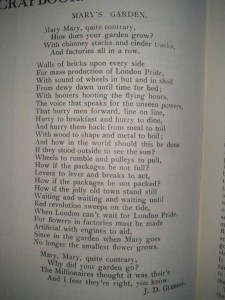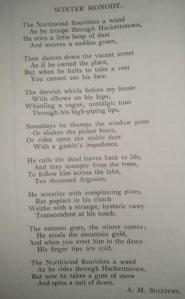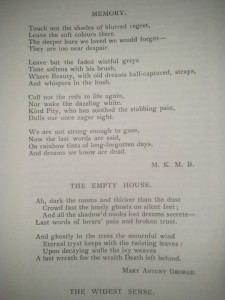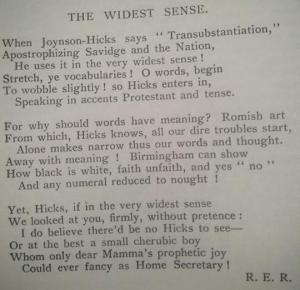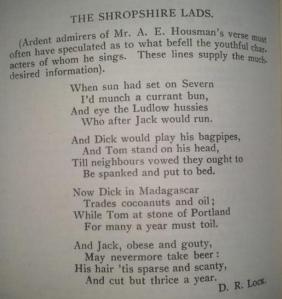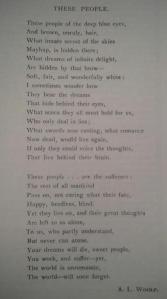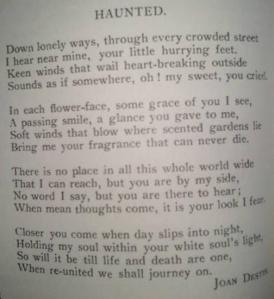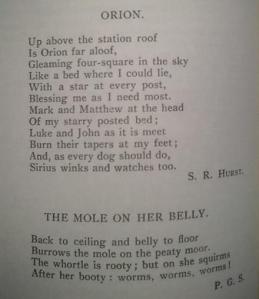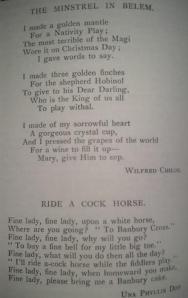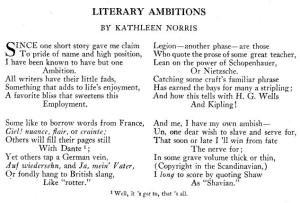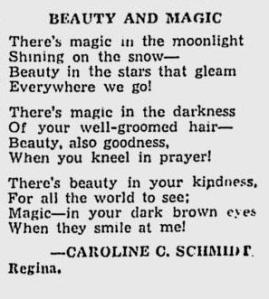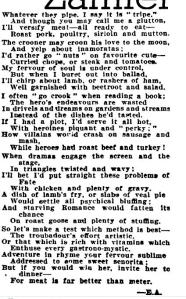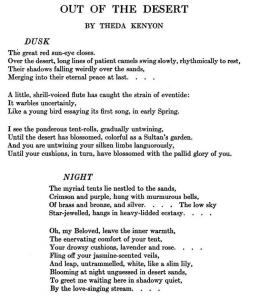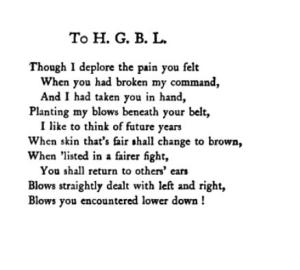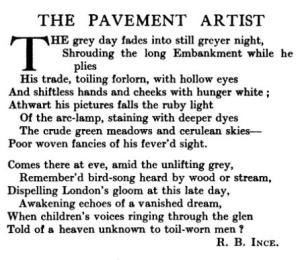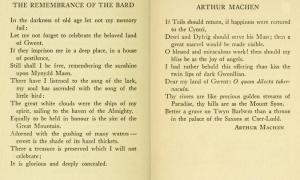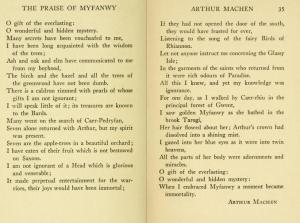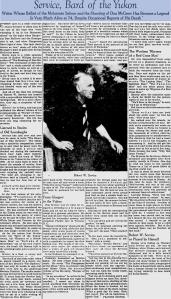The following poem is by a Robert Lynd (1800-1851) who was barrack-master of the 63rd Regiment and a friend of the explorer Ludwig Leichhardt. He wrote this poem in July 1845 when Leichhardt was presumed dead but Leichhardt returned to Sydney, alive, in March 1846.
The Sydney Morning Herald, 3 July 1845
By Robert Lynd
Ye, who prepare with pilgrim feet
Your long and doubtful path to wend,
If, whitening on the waste, ye meet
The relics of my murdered friend—
His bones with reverence ye shall bear
To where some mountain streamlet flows:
There, by its mossy bank, prepare
The pillow of his long repose.
It shall be by a stream, whose tides
Are drank by birds of every wing—
Where every lovelier flower abides
The earliest wakening touch of spring.
O ! meet that he—who so carest
All beauteous nature’s varied charms—
That he—her martyred son—should rest
Within his mother’s fondest arms.
When ye have made his narrow bed,
And laid the good man’s ashes there,
Ye shall kneel down around the dead,
And wait upon your God in prayer.
What though no reverend man be near,
No anthem pour its solemn breath,
No holy walls invest his bier
With all the hallowed pomp of death—
Yet humble minds shall find the grace,
Devoutly bowed upon the sod,
To call that blessing round the place
Which consecrates the soil to God ;
And ye the wilderness shall tell
How, faithful to the hopes of men,
The Mighty Power he served so well,
Shall breathe upon the bones again!
When ye your gracious task have done,
Heap not the rock above his dust—
The angel of the Lord alone
Shall guard the ashes of the just.
But ye shall heed, with pious care,
The memory of that spot to keep,
And note the marks that guide me where
My virtuous friend is laid to sleep.
For O ! bethink, in other times—
And be those happier times at hand—
When science, like the smile of God,
Comes brightening o’er that weary land,
How will her pilgrims hail the power,
Beneath the drooping myall’s gloom,
To sit at eve, and mourn an hour.
And pluck a leaf on Leichhardt’s tomb!
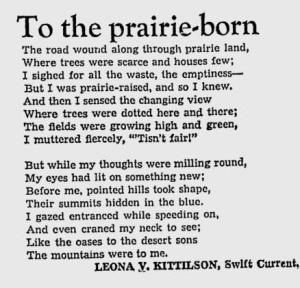
A POEM
RHYMES FOR THE YOUNG LONDONDER
THE ROUND POND
RHYMES FOR THE YOUNG LONDONDER
BUCKINGHAM PALACE
WEDDING RHYMES
THE BRIDESMAIDS
WEDDING RHYMES
AUNTS
MARY’S GARDEN
WINTER MONODY
MEMORY / THE EMPTY HOUSE
THE WIDEST SENSE
THE SHROPSHIRE LADS
THESE PEOPLE
HAUNTED
ORION / THE MOLE ON HER BELLY
THE MINSTREL IN BELEM / RIDE A COCK HORSE
The Century Magazine, May 1914
BEAUTY and MAGIC
Meat-Eating
By THEDA KENYON
https://archive.org/search.php?query=creator%3A”Kenyon%2C+Theda”
https://en.wikisource.org/wiki/Author:Theda_Kenyon
By BOHUN LYNCH
A BOXER TO HIS SON
By JOHN ALFRED SPENDER
ME
Yesterday I woke untimely
At five a.m.
But seizing the opportunity
I reflected on ME,
ME the mysterious, ME the profound,
Melancholy incarnate, destruction personified,
Joy of all joys—ME.
Plangent nouns and verbs
Ululate within ME
Saying release us or you burst.
I feel the grey cortex of the brain
Becoming red,
I see red, the whole of ME is red,
The all-red ME.
From the window I see clouds,
Clouds chasing clouds, over hills,
They are very like whales, wombats, turtles, frogs and mice,
So I say to myself, and the imagery wells up
Till I am breathless in pursuing it.
But they are all bits of ME,
ME the universal, ME the all-absorbing;
You are a bit of ME,
But I am not a bit of you,
The miracle of ME
YOU
Ectoplasmic projection of ME
Chimera phantasmal,
I see through you!
Through your heart, viscera, lungs, liver, kidneys, pituitary gland and alleged brains,
Through your complexes, inhibitions, reflexes, reactions, repercussions,
And all other subliminal contraptions and gadgets,
With which Freud, Yung, Pavlov, Croddeck, Kafka, Marx, Wikimitch and Pumperdohl,
Have replaced your obsolete soul.
I know them all, and I know you,
You! You! You!
Grinning façade, caricature of ME.
Taking air and earth that belong to ME,
There is only room in the world for ME.
By C. B. FRY
AT THE OVAL
A pea-green day at the Oval,
Sinfield sends up vertically a dolly catch,
No one accepts it.
The first over recedes into the mist.
The light is abominable.
Sinfield is plumb leg-before to a straight one,
He recedes dimly into the Pavillion.
Watts sends Neale’s off-stump into hysterics,
Barnett is caught behind the sticks off Gover.
Anyone who scores fifty today is a hero.
No one does.
Gover is becoming positively violent,
Watts too is quite on the rampage.
Dead is Page from a slip-catch off Gover,
Crapp clean bowled by the terrible Gover.
The light is now autumnally normal.
Remember Ames. He is
A keeper of the highest class
Quiet as a nesting thrush
Magically quick in taking the return.
I unreservedly withdraw
My suggestion that Sievers is a rabbit,
He is behaving like a true kangaroo,
Men are deceivers ever.
The gaming spirit that both makes and mars him
Suddenly tore the cloak of safety
In which the Don had wrapped himself
The greatest run-getter made the worst stroke
In the history of cricket.
To expect a man to score two hundred
Every time
Verges on thickness.
Adler knows people,
He knows how they react to outside circumstances,
He is not greatly interested in their insides,
Their Subconscious and all that.
He knows how unhappiness, neurosis,
Drunkenness, crime,
Arise in people whose social interest is
Insufficiently developed.
Adler knows people.
Yesterday at luncheon in London. Vigorous oratory,
It was not about politics
It was about the Russian ballet.
Madame Follette next to me,
Described ballet in America,
Isn’t it awful? I said,
She offered me a cigarette.
Byron Rufus Newton (1861-1938) Owed to New York
Bivouac Of The Dead
By Theodore O’Hara
Notting Hill Polka
By W. Bridges-Adam
The Tongue
BY PHILLIPS BURROWS STRONG.
“The boneless tongue, so small and weak,
Can crush and kill,” declared the Greek.
“The tongue destroys a greater horde,”
The Turk asserts, “than does the sword.”
The Persian proverb wisely saith,
“A lengthy tongue—an early death.”
Or sometimes takes this form instead:
“Don’t let your tongue cut off your head.”
“The tongue can speak a word whose speed,”
Says the Chinese, “outstrips the steed.”
While Arab sage doth this impart:
“The tongue’s great store-house is the heart.”
From Hebrew hath the maxim sprung,
“Though feet should slip, ne’er let the tongue.”
The sacred writer crowns the whole,
“Who keeps his tongue doth keep his soul.”
AN EARTHEN VESSEL
By W. H. HAMILTON
When I was twenty-seven
I’d mirthfully relate
How all the good chaps get to Heaven
Before they’re thirty-eight,
And with a shrug the jest I’d give
‘We’ve only ten years more to live!’
Now though the years of Burns,
Byron, and Synge are mine,
I’ve nothing sung and spring returns
When I’ll be thirty-nine:
And curse the priggish jape I spun
And wish my futile chain undone.
For, oh, the best are down
To-day at twenty-three.
On bloody fields they found their crown
In reckless chivalry.
Their generation swept us by,
And old, too old, at forty I.
Where they poured life like wine
I spoonful’d mine as paste;
This unbroke spikenard vase of mine
Condemns me of its waste.
Oh, that one mad courageous mile
Could make my pilgrimage worth while.
MONOLOGUE
By JESSIE DISMORR
My niche in nonentity still grins—
I lay knees, elbows pinioned, my sleep mutterings blunted against a wall.
Pushing my hard head through the hole of birth
I squeezed out with intact body.
I ache all over, but acrobatic, I undertake the feat of existence.
Details ol equipment delight me.
I admire my arrogant spiked tresses, the disposition of my perpetually
foreshortened limbs,
Also the new machinery that wields the chains of muscles fitted beneath
my close coat of skin.
On a pivot of contentment my balanced body moves slowly.
Inquisitiveness, a butterfly, escapes.
It spins with drunken invitation. I poke my fingers into the middles of
big succulent flowers.
My fingers are fortunately tipped with horn.
Tentacles of my senses, subtle and far-reaching, drop spoils into the vast
sack of my greed.
Stretched ears projecting from my brain are gongs struck by vigorous
and brutal fists of air.
Into scooped nets of nostrils glide slippery and salt scents, I swallow
slowly with gasps.
In pursuit of shapes my eyes dilate and bulge. Finest instruments of
touch they refuse to blink their pressure of objects.
They dismember live anatomies innocently.
They run around the polished rims of rivers.
With risk they press against the cut edges of rocks and pricking pinnacles.
Pampered appetites and curiosities become blood-drops, their hot
mouths yell war.
Sick opponents dodging behind silence, echo alone shrills an equivalent
threat.
Obsessions rear their heads. I hammer their faces into discs.
Striped malignities spring upon me, and tattoo with incisions of wild claws.
Speeded with whips of hurt, I hurry towards ultimate success.
I stoop to lick the bright cups of pain and drop out of activity.
I lie a slack bag of skin. My nose hangs over the abyss of exhaustion,
my loosened tongue laps sleep as from a bowl of milk.
TO THE RIVER AVEN
By ERNEST DOWSON 25th January, 1898
Is lotus eating lost in an old story,
And is the Golden Age departed when
Gorse lined these hills in a great golden glory,
Where river runs to sea from Pont-Aven?
Fate hath no arrows left in any quiver,
This is the land of all oblivious men:
How many dreams, and dead desires this river
Hath borne to the waste sea from Pont-Aven?
TO THOMAS HARDY ON HIS EIGHTY-THIRD BIRTHDAY
By ALFRED NOYES
A breath of hope, for those who have known despair;
Of victory, for those who have drunk defeat;
Of harvest, when the wounded fields lie bare,
Or but a mist of green foreruns the wheat;
A breath of love, when all we loved lies dead;
Of beauty, too remote for tongue to tell;
Of joy, when sorrow veiled and bowed the head;
Of Heaven, for those that daily walked in Hell —
His music breathes it, for his wrestling soul
Through agonies of denial postulates
All that young eyes affirm. He proves his goal
Divine, because he mourns the fast-barred gates;
And by his grief for love and hope brought low
Proves that the Highest ne’er would have it so.
TO THOMAS HARDY (On His Birthday)
By EDEN PHILLPOTTS
To wisdom, truth, and beauty dedicate,
With vision clear as cloudless break of day,
You mark man on his immemorial way
Rousing old echoes down the aisles of fate;
Unwearied yet, the mystery meditate;
Decipher motive, balance and survey;
Reveal the invincible predestinate,
Austerely silent touching ‘yea’ and ‘nay.’
O steadfast master, now your pilgrimage
Lights a new constellation on our sky,
A starry wonder and a heritage
Immortal in its pure humanity:
Through life’s frustrated hope and desolate truth
Shall ever shine the beacon of your ruth.
MY CHAFFINCH
By RICHARD JEFFERIES
His hours he spends upon a fragrant fir;
His merry ‘chink,’ his happy ‘Kiss me, dear,’
Each moment sounded, keeps the copse astir.
Loudly he challenges his rivals near,
Anon aslant down to the ground he springs,
Like to a sunbeam made of coloured wings.
The firm and solid azure of the ceil
That struck by hand would give a hollow sound,
A dome turned perfect by the sun’s great wheel,
Whose edges rest upon the hills around,
Rings many a mile with blue enamelled wall;
His fir-tree is the centre of it all.
A lichened cup he set against the side
High up this mast, earth-stepped, that could not fail,
But swung a little as a ship might ride,
Keeping an easy balance in the gale;
Slow-heaving like a gladiator’s breast,
Whose strength in combat feels an idle rest.
Whether the cuckoo or the chaffinch most
Do triumph in the issuing of their song?
I say not this, but many a swelling boast
They throw each at the other all day long.
Soon as the nest had cradled eggs a-twin
The jolly squirrel climbed to look therein.
Adown the lane athwart this pleasant wood
The broad-winged butterflies their solace sought;
A green-necked pheasant in the sunlight stood,
Nor could the rushes hide him as he thought.
A humble-bee through fern and thistle made
A search for lowly flowers in the shade.
A thing of many wanderings, and loss,
Like to Ulysses on his poplar raft,
His treasure hid beneath the tunnelled moss
Lest that a thief his labour steal with craft,
Up the round hill, sheep-dotted, was his way,
Zigzagging where some new adventure lay.
‘My life and soul,’ as if he were a Greek,
His heart was Grecian in his greenwood fane;
‘My life and soul,’ through all the sunny week
The chaffinch sang with beating heart amain,
‘The humble-bee the wide wood-world may roam;
One feather’s breadth I shall not stir from home.’
No note he took of what the swallows said
About the firing of some evil gun,
Nor if the butterflies were blue or red,
For all his feelings were intent in one.
The loving soul, a-thrill in all his nerves,
A life immortal as a man’s deserves.
A DREAM
X.Y. Z.
I.
I walked alone
In a land of my own—
Hills of sleep enringed it round;
Deep and broad
With never a ford
The river broke from under the ground.
II.
Trees leant over it,
Reeds did cover it,
Down the middle the sunlight went;
There clouds rested
Heavily crested—
White on the water they leaned content.
III.
And here, and there,
A delicate air
Laid on the river its faint lace fan;
The tall reeds bowed
And the bulrush proud—
Hither and thither the light wave ran.
IV.
The sun upclomb
To the high blue dome—
Set in the heaven, he watched the plain—
Watched his fill
Till the stream was still
And the face of the pastures cracked in pain.
V.
The tall reeds drooped
And the bulrush stooped;
The sweet air choked, as the sun did gaze.
The far plain glimmered
With heat that shimmered,
The feet of the mountains were ringed with haze.
VI.
On moved the sun;
One by one
Forth from the heavens the eve-clouds stept;
The wind blew starkly,
The stream ran darkly—
Day hid her face in her hands, and wept.
AVOIDING A MAN WITH AN AXE.
The Emperor Pertinax
Had a certain axe,
With which he used to strike
Those whom he did not like.
THE MOTHER OF JUDAS
By C. R. Allen
I trained your swarthy limbs to stand and walk,
And at my knee you lolled and learned to talk.
Your eyes would fix me, as they were of jet.
They, said, “Your travail is not over yet.”
WHEN FATHER CARVES THE DUCK
By E. V. WRIGHT
We all look on with anxious eyes
When father carves the duck,
And mother almost always sighs
When father carves the duck;
Then all of us prepare to rise,
And hold our bibs before our eyes,
And be prepared for some surprise,
When father carves the duck.
He braces up and grabs a fork
Whene’er he carves a duck;
And won’t allow a soul to talk,
Until he’s carved the duck.
The fork is jabbed into the sides,
Across the breast the knife he slides,
While every careful person hides
From flying chips of duck.
The platter’s always sure to slip
When father carves a duck,
And how it makes the dishes skip!
Potatoes fly amuck!
The squash and cabbage leap in space,
We get some gravy in our face,
And father mutters Hindu grace
Whene’er he carves a duck.
We then have learned to walk around
The dining-room and pluck
From off the window-sills and walls
Our share of Father’s duck
While father growls and blows and jaws,
And swears the knife was full of flaws,
And mother laughs at him because
He couldn’t carve a duck.
The Augustan books of English poetry
Here it is. The series The Augustan books of Modern poetry. You can view and download most of these books. If you know of any other viewable Augustan books online please let me know.
Sylvia Lynd
Henry W. Nevinson
Francis Bret Harte
William Blake
Edward Thomas
Edmund Gosse
John Drinkwater
Austin Dobson
Andew Lang
Hilaire Belloc
Ralph Waldo Emerson
Alice Meynell
Harold Monro
Rupert Brooke
Robert Bridges
Maurice Hewlett
John Davidson
J.K. Stephen
FRANK NORRIS
– Yvernelle
– Brunhilde
– Crepusculum
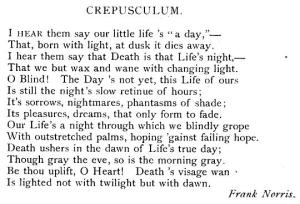 – The Exile’s Toast http://everything2.com/title/The+Exile%2527s+Toast
– The Exile’s Toast http://everything2.com/title/The+Exile%2527s+Toast
ARTHUR MACHEN
– Eleusinia http://kobek.com/machen.pdf
– THE REMEMBRANCE OF THE BARD
On ROBERT WILLIAM SERVICE
A vers de société anthology : Wells, Carolyn https://archive.org/details/aversdesocitant00wellgoog
American familiar verse, vers de société https://archive.org/details/amerfamilarverse00mattrich
The Little Book of Society Verse http://www.bartleby.com/263/
Lyra elegantiarum; : Locker-Lampson https://archive.org/details/lyraelegantiaru01lamgoog
The muses of Mayfair; selections from vers de société https://archive.org/details/musesmayfairsel00pengoog
The Parlor muse : a selection of vers de société https://archive.org/details/parlormuseasele01buncgoog
Vers de société: Charles H Jones https://archive.org/details/versdesocit00jone

